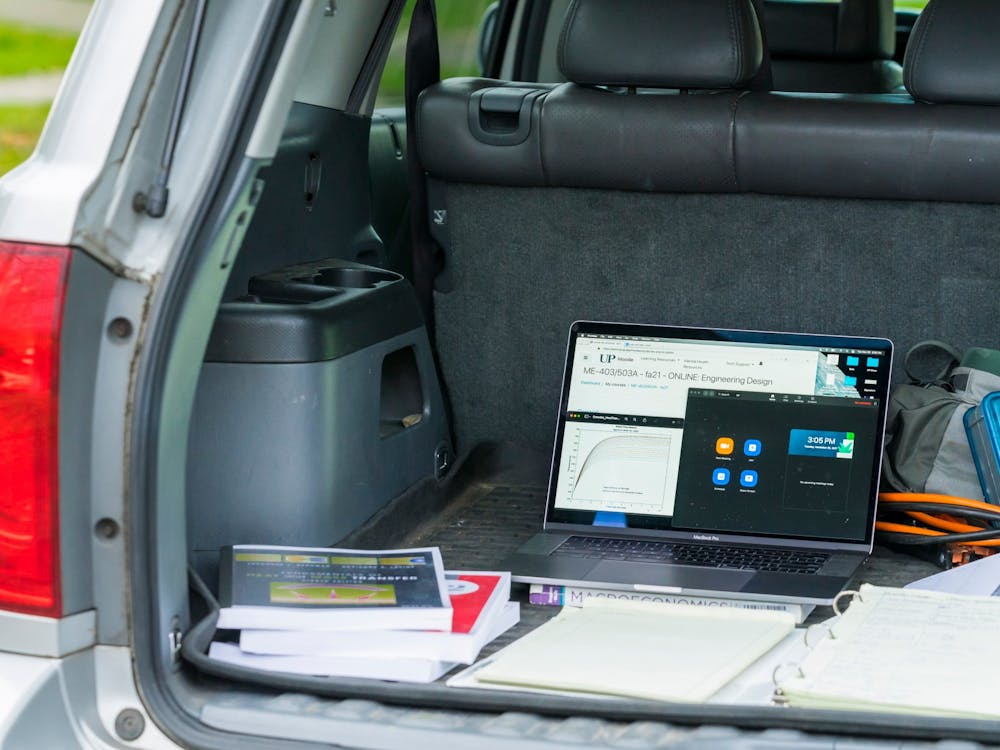(Kayla Wong -- The Beacon)
By
Having lived in on-campus housing the past three years, a gripe I have constantly heard repeated among residents (myself included) has been the internet speed in on-campus buildings. Of particular irritation is what many considered to be subpar wireless (Wi-Fi) internet speeds. Deciding to take an objective view of the matter, I tested out the speeds myself in various campus buildings.
I visited nearly every major academic building and dormitory on campus and took five measurements of the building's Wi-Fi internet speed. I used SpeedTest.com, an accepted standard for testing internet connections. Then to be fair, I dropped the lowest and highest speeds from consideration. All measurements were taken in the afternoon or early evening, in order to mimic typical usage patterns.
I found that the overall average on-campus Wi-Fi speed was 4.70 megabits per second (Mb/s). Academic buildings were higher, with a 6.05 Mb/s average speed. Dormitories were lower, with a 3.57 Mb/s average speed. I took a second round of tests two weeks later, and all speeds were similar, but in most cases actually slower.
While not surprised given my past experiences, I was still disappointed with the results. Quite simply, UP should hold itself to a higher technological standard. The U.S. Federal Communications Commission defines broadband internet as having download speeds of at least 4 Mb/s. It is apparent that UP is barely meeting this standard, and not even meeting this benchmark in most dormitories.
We are a small, private liberal arts university, and the year is 2011. UP should not just be meeting the minimum broadband internet speed, but exceeding it. Technology is the way of the future. For example, Finland has made internet access a human right. Seoul, South Korea is now planning to offer free Wi-Fi throughout the entire city.
Press releases and awards for UP constantly take pride in the school being one of the top colleges on the West Coast, yet internet speeds are barely up to standard.
As a basis for comparison, I moved off campus this year and signed my new house up for Comcast Internet. We chose a mid-level priced internet package and consistently get 30+ Mb/s over our Wi-Fi. This is still not even on the higher side of things, as packages offering speeds of up to 100 Mb/s are now available from Comcast.
I am not saying our school should be offering 100 Mb/s Wi-Fi throughout the entire campus. I understand bandwidth is expensive, having many people using the resources at the same time leads to slowness and using a physical Ethernet cord would likely lead to faster internet speeds. None of these are legitimate excuses, though.
With most people on laptops these days, using an Ethernet cord is just not an option for the typical user. As for cost, investing in technology is only an investment in the future. With services such as Netflix, Hulu and iTunes becoming the norm, bandwidth problems will only grow, especially with the advent of high definition video. The longer the school continues to lag behind, the harder it will be later to get up to speed.
We are a school. The entire purpose of this institution is to disseminate knowledge and information, which is starting to be done more and more over the internet. If internet speed becomes a hindrance instead of an advantage, this purpose will become unfulfilled. The school must start taking immediate steps to prevent this from happening.
Jason Hortsch is a senior mathematics major. He can be contacted at hortsch12@up.edu.
Test results can be found in an online album at http://tinyurl.com/4ypoavw.








